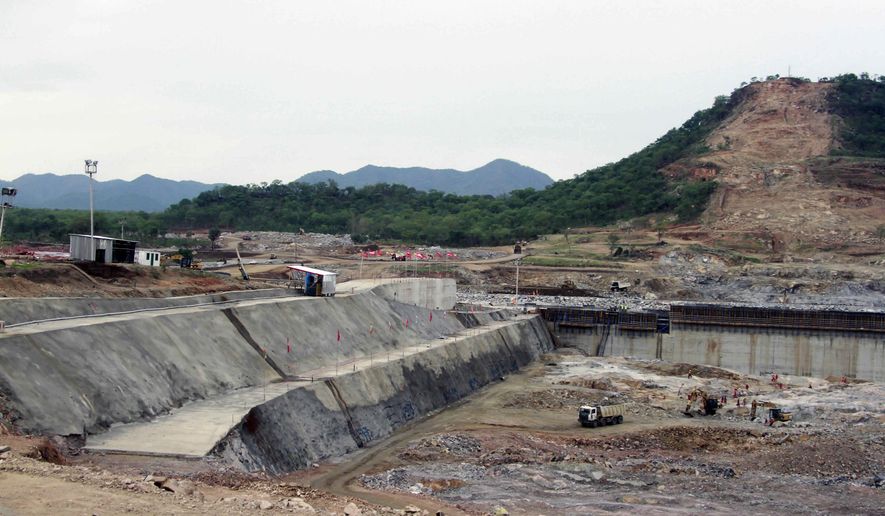CAIRO (AP) - Three key Nile basin countries resumed negotiations on Tuesday over a giant $4.6 billion hydroelectric dam that Egypt fears will constrict its water supply, following months of deadlock, Sudanese officials said.
Sudan Irrigation Minister Yasser Abbas told reporters in the capital, Khartoum, that technical talks about Ethiopia’s contentious megaproject got underway in a “positive spirit,” though pessimism has grown about the possibility of a deal before July, when Ethiopia has pledged to start filling the dam with water.
The dispute over what will be Africa’s largest hydroelectric dam pits Ethiopia’s desire to become a major power exporter and pull millions out of poverty against Egypt’s concern that the dam will curtail its critical share of the river if filled too quickly.
Sudan, long caught between the competing interests of Egypt and Ethiopia, had pushed the two sides to resume negotiations, which had been hamstrung since Ethiopia skipped out on the last round of talks brokered by the Trump administration in February.
Abbas did not describe the sticking points, but said Egypt hoped for a return to the preliminary agreement drawn up in Washington, while Ethiopia had raised several “outstanding issues.”
Addressing parliament on Monday, Ethiopian Prime Minister Abiy Ahmed reiterated his desire to start filling the dam during the rainy season next month.
“We don’t want to hurt anyone else, and at the same time it will be difficult for us to accept the notion that we don’t deserve to have electricity,” he said, referring to the country’s ambitions to use the dam to provide badly needed power to 70 million Ethiopians.
“We are tired of begging others while 70% of our population is young,” he said. “This has to change.”
Egypt’s national security council, headed by President Abdel Fattah el-Sissi, said Tuesday that the resumption of talks was long overdue given pressure to reach an agreement before Ethiopia takes action. The dam is already some 75% complete, and Egypt fears that Ethiopia may decide to start filling the reservoir unilaterally if the parties don’t arrive at a deal in time.
“It is important to have a timeframe for the talks,” said Egypt’s statement, “to ensure the talks are not a new tool for stalling or evading obligations.”




Please read our comment policy before commenting.